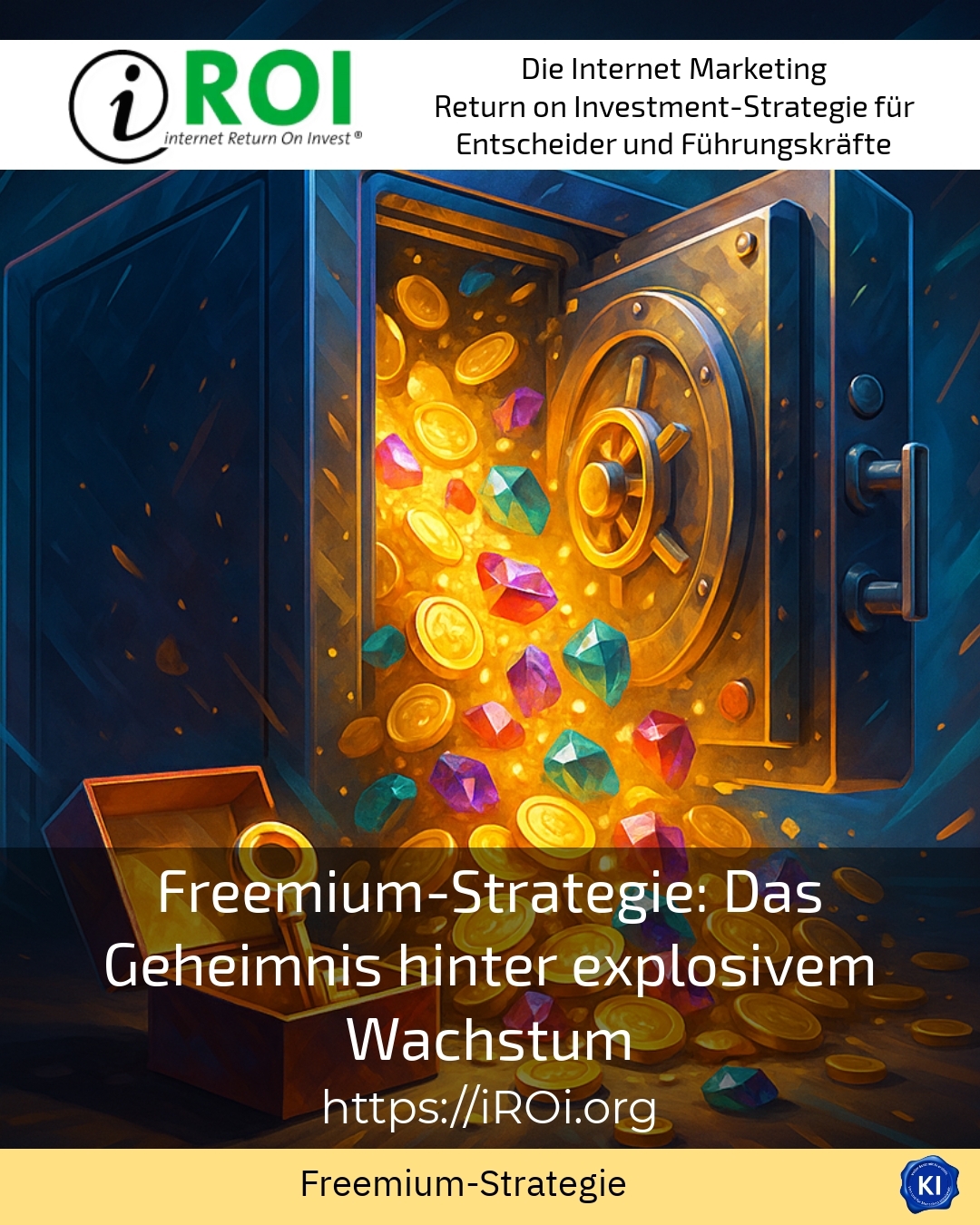The freemium strategy has established itself as an effective model for enabling rapid growth and simultaneously addressing new customer groups. Offering a free basic version in combination with attractive premium upgrades creates a low barrier to entry. This attracts a broad audience and creates a long-term connection to the product or service.
Basics and opportunities of the freemium strategy
The principle behind the freemium strategy is simple: users receive free access with limited functions. Classic customer acquisition is achieved by demonstrating this value and supplementing it with premium offers. This increases the willingness to pay for additional functions or better services. This combination supports the development of a large user base and opens up numerous sales opportunities.
Numerous examples in the software industry prove the success of this approach. Spotify, for example, provides millions of users with a free music platform with adverts. The premium version attracts many users to upgrade through ad-free listening and offline access. Dropbox offers free cloud storage that users can expand for a fee if required. LinkedIn allows a basic profile with networking functions, while premium users benefit from extended profile views and further training opportunities.
These examples show that the freemium strategy works excellently, especially in the digital environment, because it creates trust and at the same time incentivises purchases. The low barrier to entry can be very effective in attracting new customers who would otherwise be put off by a paid entry-level version.
BEST PRACTICE with one customer (name hidden due to NDA contract)
A software start-up in the project management sector introduced a freemium strategy that enabled small teams to use the basic functions free of charge. Through targeted additions to the premium version - such as extended reports and integrations - the number of paying customers increased continuously. Users reported that the free version supported them in their daily work and at the same time incentivised them to use the premium features.
Important success factors of the freemium strategy
Success depends largely on a few factors. Firstly, the free basic version should offer real added value. It must be sufficiently functional to retain users, but at the same time contain enough restrictions to incentivise them to upgrade. Secondly, the premium offer must be designed in such a way that it communicates clear benefits and exclusive features. Finally, the conversion rate, i.e. the proportion of users who switch from the free to the paid offer, is crucial for success.
In the field of media and communication software, many manufacturers still offer attractive basic services free of charge. For example, Zoom enables the use of video conferencing for up to 40 minutes free of charge. An upgrade is required for longer meetings or more participants. This strategy led to explosive growth in the number of users, who were able to experience the potential of the platform convincingly.
Evernote also utilises success factors of the freemium strategy: limited storage and a restricted number of devices in the basic version encourage upgrades. Premium customers enjoy unlimited access and extended support. It is also particularly important to collect user feedback and continuously improve the product.
BEST PRACTICE with one customer (name hidden due to NDA contract)
A digital education provider introduced a freemium strategy with free course content. Users could access all basic courses as often as they wanted. A subscription was introduced for more in-depth content and certificates. Customers reported that the freemium version helped them to gain initial impetus before making an investment in the premium area. The strategy supported awareness among the target group and noticeably increased the number of subscribers.
Challenges and tips for implementation
The freemium strategy is not without its challenges. In particular, the balance between free and paid functions is critical. Large free offers can prevent users from paying for upgrades, while too few restrictions can reduce the perceived attractiveness of the premium version. In addition, the support and infrastructure for free users generates costs that need to be covered.
A clear positioning of the premium offer with unique, valuable features is recommended. Equally important is a user-friendly upgrade process without disruptive barriers. A good analysis of user behaviour helps to optimally adapt the offer and increase conversion.
Building up customer data through free use is also a valuable advantage. Companies can address their target group more specifically and customise marketing measures. In this way, the freemium strategy not only supports growth, but also long-term customer loyalty.
BEST PRACTICE with one customer (name hidden due to NDA contract)
A company in the field of online tools for creative professionals implemented a freemium model in which basic tools were accessible free of charge. Personalised emails and targeted marketing based on usage patterns were used to offer compelling premium upgrades. This led to a strong increase in paying users. The regular evaluation of the offer ensured an optimal balance between free and paid functions.
My analysis
The freemium strategy is an effective way to support growth and build customer relationships at the same time. The free basic version creates trust and makes it easy for users to try out a product. It is crucial that the premium offer provides clear added value and that users are easily motivated to upgrade.
Many companies from various industries report positive effects on brand awareness and sales development. Targeted implementation with continuous adaptation and validation of the offers is the key to success with the freemium strategy. iROI-Coaching will be happy to assist you with projects relating to the design and optimisation of this strategy.
Further links from the text above:
Freemium vs. premium: strategies for monetisation
Freemium model: definition, examples & more
Freemium strategy: increase sales and win customers
Freemium model: opportunities, challenges & more
For more information and if you have any questions, please contact Contact us or read more blog posts on the topic internet Return on Investment - Marketing here.
















